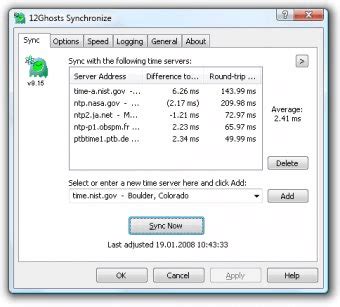Weathernetwork comn
Author: i | 2025-04-25

Chikka Comn. If you are looking for Chikka Comn? Then, this is the place where you can find some sources which provide detailed information.

The Weather Network (@weathernetwork) - Instagram
Kings 11:39 זֹאת ׳ל in view of this, שׁוֺרֲרַי ׳ל on account of my watchful foes, Psalm 5:9; Psalm 27:11, צורריך ׳ל Psalm 8:3, simil. Psalm 69:19; Psalm 48:12 (Psalm 97:8) משׁפטיך ׳ישמח הר ציון ֗֗֗ ל in view of thy judgments. c. Sq. infinitive Genesis 18:19 ׳לְמַעַן הָבִיא י for the purpose of J.'s bringing = to the intent that J. might bring, Genesis 37:22 הַצִּיל ׳ל in order to rescue, Genesis 50:20; Exodus 1:11; Exodus 9:16; Exodus 10:1, etc., Deuteronomy 2:30; Deuteronomy 6:28, etc., 2 Kings 10:19; Jeremiah 7:10,18; Jeremiah 11:5; Jeremiah 50:34 (on הִרגיע, see עַד 2a b), Ezekiel 14:5; Ezekiel 21:5; Ezekiel 22:6 etc., Ezekiel 36:5, + often (Köiii.595 f.). Once, pleonastic, לְמַעַן לָמוּג לֵב Ezekiel 21:20 (compare כַּעֲבוּר לְ 1 Chronicles 19:3; but read probably הִמּוֺג). 2. conjunction (followed by imperfect): — a. לְמַעַן אֲשֶׁר Genesis 18:19 I have known him אשׁר יְצַוֶּה ׳ל to the end that he might command, etc., Deuteronomy 27:3; Joshua 3:4; 2 Samuel 13:5; Jeremiah 42:6; more often b. without אשׁר, as Genesis 12:13 לְמַעַן יִיטַב לִי, Genesis 27:25; Exodus 4:5 יאמינו ׳ל, Exodus 8:6; Exodus 8:18; Exodus 9:29; Exodus 10:2; Isaiah 5:19; Isaiah 23:16; Psalm 9:15; Psalm 30:13; Psalm 48:14 + often (Köiii.571). c. Sq. לֹא (a) אשׁר לֹא ׳ל Numbers 17:5; Deuteronomy 20:18; Ezekiel 31:14; Ezekiel 36:30; Ezekiel 46:18; (b) לֹא ׳ל Ezekiel 14:11; Ezekiel 19:9; Ezekiel 25:10; Ezekiel 26:20; Zechariah 12:7; Psalm 119:11; Psalm 119:80; Psalm 125:3 (Köiii.574. Less common than לְבִלְתִּי or מִן with infinitive, or מֶּןֿ).Note 1 — לְמַעַן is always in order that, never merely so that ἐκβατικῶς); but sometimes, in rhetorical passages, the issue of a line of action, though really undesigned, is represented by it ironically as if it were designed: Deuteronomy 29:18 (see Dr) ׳סְפוֺת וגו ׳וְהִתְבָּרֵךְ כִּלְבָבוֺ ֗֗֗ ל and he congratulate himself ... in order to sweep away the moistened with the dry (i.e. to destroy all together), Isaiah 30:1; Isaiah 44:9 יֵבוֺשׁוּ ׳בל יראו ובל ידעו ל in orer that they may be put to shame, Jeremiah 7:18 הַכְעִיסֵנִי ׳ל, Jeremiah 7:19 בּשֶׁת פְנֵיהֶם ׳ל, Jeremiah 27:10,15; Jeremiah 32:29; Hosea 8:4 their silver, etc., they have made into idols יִכָרֵת ׳ל in order that it may be cut off (of course, not the real purpose of the idolatry), Amos 2:7; Micah 6:16: compare Psalm 51:6 (see Comn.) in order that thou mightest be just when thou judgest (that is, by manifesting thy justice in judgement on my sin). compare Qor 28:7 (FlKl. Schr. i. 397 f.).Note 2. — In Joshua 4:24 for the anomalous יְרָאתֶם ׳ל, read infinitive יִרְאָתָם ׳ל in order that they might fear (Dr§ 14 Obs.): Nehemiah 6:13 לְמַעַן שָׂכוּר הוּא לְמַעַן אִירָא (si vera 1.) the first ׳ל points forwards, to this intent was he hired, to the intent that I should be afraid. — On Proverbs 16:4, see מַעֵנֶה above Strong's Exhaustive Concordancebecause of, to the end intent that, for to, From anah; properly, heed, i.e. Purpose; used only adverbially, on account of Chikka Comn. If you are looking for Chikka Comn? Then, this is the place where you can find some sources which provide detailed information. weather weatherstar weathernetwork 2025 : PMD_Absol-UKComments
Kings 11:39 זֹאת ׳ל in view of this, שׁוֺרֲרַי ׳ל on account of my watchful foes, Psalm 5:9; Psalm 27:11, צורריך ׳ל Psalm 8:3, simil. Psalm 69:19; Psalm 48:12 (Psalm 97:8) משׁפטיך ׳ישמח הר ציון ֗֗֗ ל in view of thy judgments. c. Sq. infinitive Genesis 18:19 ׳לְמַעַן הָבִיא י for the purpose of J.'s bringing = to the intent that J. might bring, Genesis 37:22 הַצִּיל ׳ל in order to rescue, Genesis 50:20; Exodus 1:11; Exodus 9:16; Exodus 10:1, etc., Deuteronomy 2:30; Deuteronomy 6:28, etc., 2 Kings 10:19; Jeremiah 7:10,18; Jeremiah 11:5; Jeremiah 50:34 (on הִרגיע, see עַד 2a b), Ezekiel 14:5; Ezekiel 21:5; Ezekiel 22:6 etc., Ezekiel 36:5, + often (Köiii.595 f.). Once, pleonastic, לְמַעַן לָמוּג לֵב Ezekiel 21:20 (compare כַּעֲבוּר לְ 1 Chronicles 19:3; but read probably הִמּוֺג). 2. conjunction (followed by imperfect): — a. לְמַעַן אֲשֶׁר Genesis 18:19 I have known him אשׁר יְצַוֶּה ׳ל to the end that he might command, etc., Deuteronomy 27:3; Joshua 3:4; 2 Samuel 13:5; Jeremiah 42:6; more often b. without אשׁר, as Genesis 12:13 לְמַעַן יִיטַב לִי, Genesis 27:25; Exodus 4:5 יאמינו ׳ל, Exodus 8:6; Exodus 8:18; Exodus 9:29; Exodus 10:2; Isaiah 5:19; Isaiah 23:16; Psalm 9:15; Psalm 30:13; Psalm 48:14 + often (Köiii.571). c. Sq. לֹא (a) אשׁר לֹא ׳ל Numbers 17:5; Deuteronomy 20:18; Ezekiel 31:14; Ezekiel 36:30; Ezekiel 46:18; (b) לֹא ׳ל Ezekiel 14:11; Ezekiel 19:9; Ezekiel 25:10; Ezekiel 26:20; Zechariah 12:7; Psalm 119:11; Psalm 119:80; Psalm 125:3 (Köiii.574. Less common than לְבִלְתִּי or מִן with infinitive, or מֶּןֿ).Note 1 — לְמַעַן is always in order that, never merely so that ἐκβατικῶς); but sometimes, in rhetorical passages, the issue of a line of action, though really undesigned, is represented by it ironically as if it were designed: Deuteronomy 29:18 (see Dr) ׳סְפוֺת וגו ׳וְהִתְבָּרֵךְ כִּלְבָבוֺ ֗֗֗ ל and he congratulate himself ... in order to sweep away the moistened with the dry (i.e. to destroy all together), Isaiah 30:1; Isaiah 44:9 יֵבוֺשׁוּ ׳בל יראו ובל ידעו ל in orer that they may be put to shame, Jeremiah 7:18 הַכְעִיסֵנִי ׳ל, Jeremiah 7:19 בּשֶׁת פְנֵיהֶם ׳ל, Jeremiah 27:10,15; Jeremiah 32:29; Hosea 8:4 their silver, etc., they have made into idols יִכָרֵת ׳ל in order that it may be cut off (of course, not the real purpose of the idolatry), Amos 2:7; Micah 6:16: compare Psalm 51:6 (see Comn.) in order that thou mightest be just when thou judgest (that is, by manifesting thy justice in judgement on my sin). compare Qor 28:7 (FlKl. Schr. i. 397 f.).Note 2. — In Joshua 4:24 for the anomalous יְרָאתֶם ׳ל, read infinitive יִרְאָתָם ׳ל in order that they might fear (Dr§ 14 Obs.): Nehemiah 6:13 לְמַעַן שָׂכוּר הוּא לְמַעַן אִירָא (si vera 1.) the first ׳ל points forwards, to this intent was he hired, to the intent that I should be afraid. — On Proverbs 16:4, see מַעֵנֶה above Strong's Exhaustive Concordancebecause of, to the end intent that, for to, From anah; properly, heed, i.e. Purpose; used only adverbially, on account of
2025-04-06